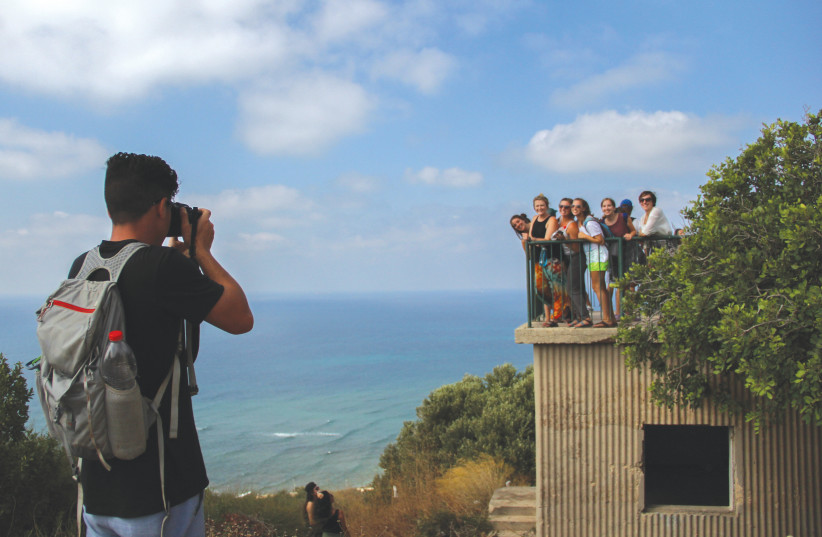The bad news ricocheted from Boston to Israel quickly last week. Cheryl Aronson, a 58-year-old Jewish community powerhouse, had suddenly dropped dead. Those of us who worked with Cheryl, who befriended Cheryl – and to work with her was to befriend her – were stunned. As our mini-ecosphere of Israel activists and educators mourned this great disruption, the eulogies inspired me. In saluting our friend and defining her achievements, the tributes celebrated the Jewish values that guide us – and the Zionist mission that keeps us meeting and brainstorming, arguing and programming – be it as professionals or volunteers. While feeling unlucky to have lost a friend, I felt lucky to belong to this goal-oriented extended family.
Cheryl Aronson worked at the Combined Jewish Philanthropies, Boston’s Jewish Federation, for three decades. In 2007, she founded the IACT, Inspired, Active, Committed and Transformed Campus Engagement Program – perhaps the most successful Birthright Israel follow-up program. It offers pre- and post-trip programming on two dozen American campuses. Hillel International recently hired Cheryl to take that program nationally. That cemented her standing as a change agent in three critical forces in American Jewish life: the Federation movement, which raises over $3 billion annually, Hillel, which serves thousands of students on 600 campuses globally, and Birthright, with its 700,000 alumni.
Cheryl was a pillar of the Taglit-Birthright Israel International Education Committee, which I chair as a lay leader. Most eulogies emphasize her successes – I recall two “shortcomings.” She didn’t know how to be “just” a colleague – as soon as she joined the committee, our ideological click ran so deep we felt like old friends. Nor did she know how to be a bystander. She understood that the real work begins when the meeting ends.
We never gossiped or discussed our personal lives. We bonded over our shared love of Israel and the Jewish people. That common vision jump-starts most of us in this small blue-and-white universe as friends not just colleagues, then fuels us in this sacred cause.
Beyond her smarts and her passion, what most impressed me about Cheryl was that, unlike so many other educators today, she did not fear Generation Z (also known as zoomers). That’s why she clicked so well with students. “She told her truth, emet, the truth” her colleague Michelle Rojas-Tal, Hillels’ Jewish Agency shlicha (emissary), explains. Even if that truth wasn’t politically correct.
And it wasn’t.

In a recent email, Cheryl beautifully articulated the counter-cultural lure of Birthright – and our peoplehood-oriented work. (To respect her privacy, I am only quoting statements echoing statements I heard her make publicly).
Birthright Israel, she wrote, “is that moment of potential for thousands to feel a sense of belonging to the Jewish people that they can take with them. I ain’t willing to give that up to make room for more songs about universalism. We got that covered. It is because I am part of the Jewish people that I feel a responsibility to be part of making the world a better place. And I want to expose young adults to the power of Jewish peoplehood and help make it come alive through authentic experiences with real people and community.”
BY CELEBRATING Jewish particularism, Cheryl was not abandoning the world. “We interface with the world. That’s what we do but why do WE matter?... why does everyone else get to speak about what makes them special except for Jews? Just saying.”
Refusing to build a defensive identity, she didn’t limit Zionism to anti-antisemitism. “As horrific as antisemitism is,” she explained, “our understanding of why it matters to be part of the Jewish people is a much higher priority to me including why be Jewish and why be a Zionist – these I believe are the number 1 priorities for Birthright.”
Taking “a rest from virtue-signaling,” she didn’t understand why so many educators try teaching about Israel and the Jewish people by starting with headaches: “We need Birthright to continue to be a ‘sacred’ space that promotes our sense of ownership and pride in being part of the Jewish people along with our connection with Israel more than ever. So if we can’t spend our time unpacking the details of rental disputes in East Jerusalem on Birthright, I’m OK with that. That can be a second or third or fourth date. It doesn’t need to be the first date with the Jewish people and Israel.”
Finally, quoting a colleague’s goal, she wanted “my students to smile when they hear the word ‘Israel.’” But Cheryl – being Cheryl – she wanted students smiling with “the words, the Jewish people” too.
Cheryl wrote no books and built no buildings. Her legacy is in the values she lived, this Positive Particularistic Peoplehood Pride she conveyed, and the many lives she changed. Josh Sussman, Nefesh B’Nefesh’s senior events manager, recalls how as a young Federation staffer in 1993, Cheryl stretched some rules, helping him find a year-long Israel program that inspired him. Since 2004, he, his wife, and (now) six kids live in Israel – thanks, partially to her intervention. Josh praised Cheryl on Facebook, as his Zionist “angel.”
His son M. serves with my son A. in the army. Every time, M. has A.’s back, or even just entertains him, I will feel Cheryl’s spirit still shining on both our families.
Judaism has elaborate mourning rituals for family – yet none for friends. This column – and my renewed commitment to our shared calling – are my little ways of honoring Cheryl Aronson, who used her people-person skills to be the consummate peoplehood-person.
Gil Troy is a Distinguished Scholar of North American History at McGill University and the author of nine books on American History and three books on Zionism. His book, Never Alone: Prison, Politics and My People, coauthored with Natan Sharansky was just published by PublicAffairs of Hachette. The views expressed here are his own.
